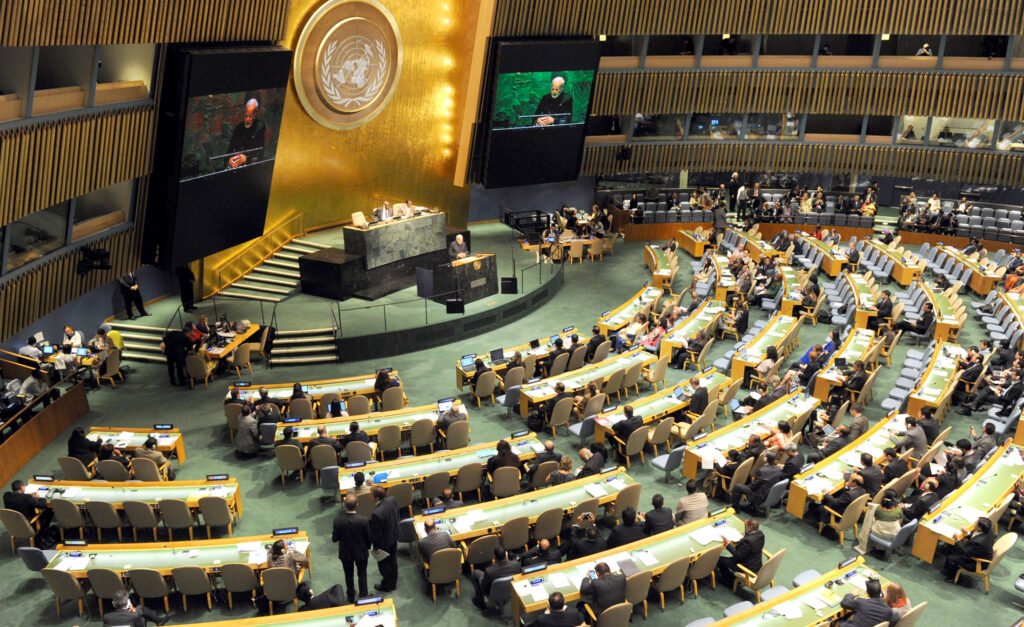
Ah, the United Nations Security Council (UNSC), a trademark of global diplomacy, where the fortunes of nations are determined by a chosen few who assert their authority as representatives of the modern world. It is truly extraordinary that five permanent members of the UNSC (China, France, Russia, the United Kingdom, and the United States), each possessing the power of veto, can influence the direction of world peace and security. At the same time, it is also quite remarkable to contemplate the brilliance of those who created this magnificent structure, guaranteeing that the winners of a war fought almost eighty years ago retain the authority to maintain the world order. Nevertheless, let’s not deceive ourselves. The UNSC has completely shifted its focus long ago from global governance to the political manoeuvring of its permanent members, who prioritise their interests over real justice and representation. And who better to be excluded from this exclusive club than today’s India, home to nearly a fifth of humanity, a rapidly growing economy, and a military, considered one of the world’s most powerful!
India’s tryst with the United Nations (UN) commenced shortly after the World War II wound up in 1945. As one of the 51 original founding members, India’s commitment to world peace and stability was evident from the very beginning. Unfortunately, the initial encounter between India and the UN was far from positive. In 1948, when Pakistani forces attacked Kashmir, India, under the leadership of then Prime Minister Jawaharlal Nehru referred the matter to the UN Security Council. However, instead of acknowledging the aggression as an invasion, the UN Security Council chose to perceive it as a bilateral disagreement. This revealed the Security Council’s true character, not as an unbiased institution committed to peace, but as a political entity where national strategic calculations take precedence over equity.
Since then, India has consistently made its compelling case for a permanent seat at the UN Security Council. The arguments are very convincing; India is the world’s largest democracy, has the largest population, and boasts the 4th largest military and 5th largest economy. India is also a nuclear power, a major space-faring nation, has never wavered in its payments to the UN budget and is the largest troop contributor to peacekeeping missions around the world. It is a founding member of both the UN as well as the UN Security Council, and has a longstanding policy of upholding peace and dialogue.
The question of why India is not yet a permanent member of the UN Security Council cannot be answered without considering one of the most significant strategic mistakes in history. During the initial stages of the cold war, both the United States and the Soviet Union reportedly extended an offer to India for a UNSC permanent seat. However, again Nehru, then Prime Minister, rejected these offers, asserting that the seat should be given to China. Nehru thought that accepting China’s demands would alleviate tensions between the two nations and contribute to regional stability. Regrettably, history has proven that this was a grave miscalculation. China has exercised its veto power at the UN Security Council on numerous occasions, particularly in relation to India’s interests, more specifically concerning terrorism and regional security.
In his speech at the United Nations Economic and Social Council commemorating the UN’s 75th anniversary, India’s Prime Minister Narendra Modi has also emphasised the need for a reformed multilateralism that reflects the realities of today’s world. He called for the UN to undergo a rebirth, just as it had done after the 2nd World War, to better meet the aspirations of humanity in the 21st century. India’s bid for a UN Security Council permanent seat is a pivotal part of this broader call for reform.
Burgeoning economies like India, Brazil, and South Africa, as well as regional leaders like Japan and Germany, have all made compelling cases for UNSC permanent seats, yet they remain out. The reality is that the five permanent members are unwilling to share power. They may publicly support the idea of UNSC reforms, but behind closed doors, they are content with the status quo. The veto power, in particular, is a tool they are reluctant to relinquish or extend to others, as it allows them to control the agenda and protect their own interests. This is one of the prime reasons why every proposal for reform has been met with resistance, and why meaningful change has remained elusive.
As the global order continues to evolve, the relevance of the UNSC is rapidly waning, with newer, more inclusive alliances like BRICS, SCO etc. rising to reflect the harsh realities of the 21st century, especially in the case of Asia. India’s longtime rightful pursuit of a UNSC permanent seat highlights the deep flaws in the current global governance framework. However, it must be acknowledged that true power lies not just in a seat at an increasingly obsolete table, but in a nation like India’s ability to shape outcomes and lead the path to the future, guided by the principle of Vasudhaiva Kutumbakam, towards Viksit Bharat 2047. Ultimately, India’s fate is in its own hands. But, the real question we face today is as clear as it gets; Will the UNSC reform, or will it become a relic of the past?






Add comment